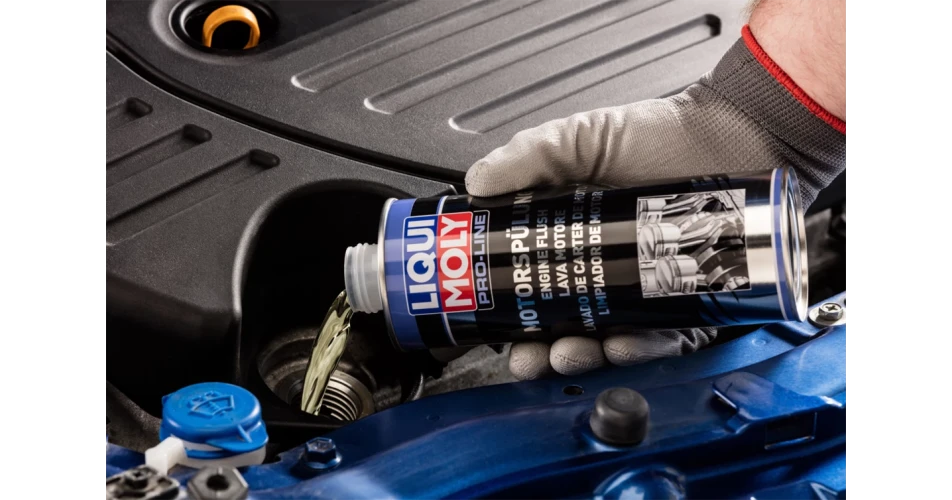LIQUI MOLY have highlighted how its additives can solve problems such as high oil consumption, without the need for expensive mechanical repairs. This especially applies to vehicles where the piston rings no longer seal properly, resulting in dirty combustion, which produces even more deposits.
LIQUI MOLY says, state-of-the-art motor oils are produced with very limited tolerances. On the one hand, this makes them very efficient, however, on the other, they are very sensitive to contamination. Contamination is bound to occur sooner or later, depending on the fuel quality, driving style, oil quality and engine technology.
LIQUI MOLY show the example of an Audi A5 2.0 TFSI, from 2011 with a mileage of 81,435 kilometers. The owner complained of the continuously increasing oil consumption, which had reached 1.5 litres/1000 kilometers. An Audi workshop wanted 4700 euros for the repair work. Then the owner contacted LIQUI MOLY for assistance.
“Considering the mileage, it was suspected, that dirt in the engine contributed to the high oil consumption”, explained Dietmar Schmid, Applications Engineer at LIQUI MOLY. For this reason we reached into our toolbox and pulled out a pair of chemical brushes.”
The Pro-Line Fuel System Cleaner was used to remove contamination from the fuel and injection system. It is simply poured into the fuel tank. Each time the engine runs, the effective ingredients dissolve deposits on the injection nozzles. This ensures that the fuel is again atomized finely allowing it to burn cleaner and produce fewer residues. The oil circuit was purged with Pro-Line Engine Flush. This product is added to the old oil just before it is changed. It dissolves sludge and deposits which are then drained together with the old oil. Finally the contamination in the intake system was removed with Pro-Line Throttle Valve Cleaner, allowing the engine to breath freely again.
In addition, friction in the engine was reduced. For this purpose, CeraTec was added to the fresh oil during the oil change as a high-tech wear protection additive. It reduces friction and wear through chemical and thermally highly stressable ceramic compounds, thus preventing direct metal-to-metal contact and increasing the service life of the components.
After a short test drive, the compression was measured again. The value had improved between 0.5 and 1.5 bars on all four cylinders. Inspection with an endoscope showed that the combustion chambers were now significantly cleaner and wet spots were no longer visible on the piston crowns.
The driver completed 600 km and the oil was checked, with consumption found to be close to zero, the successful repair had also cost only 5% of the initially estimated repair costs.
“This is an excellent way for workshops to secure customer loyalty”, confirmed Dietmar Schmid. “Not only does it solve the problem, it does it for a fraction of the cost quoted by the competition. This spreads quickly by word of mouth.”
Dietmar says the advantages of additives are that, in addition to their effectiveness, they cost less and are easy to use. He concludes, “Additives are not a panacea for revitalising defective engines, but they are useful chemical tools, that every good workshop should have in their toolbox.“
